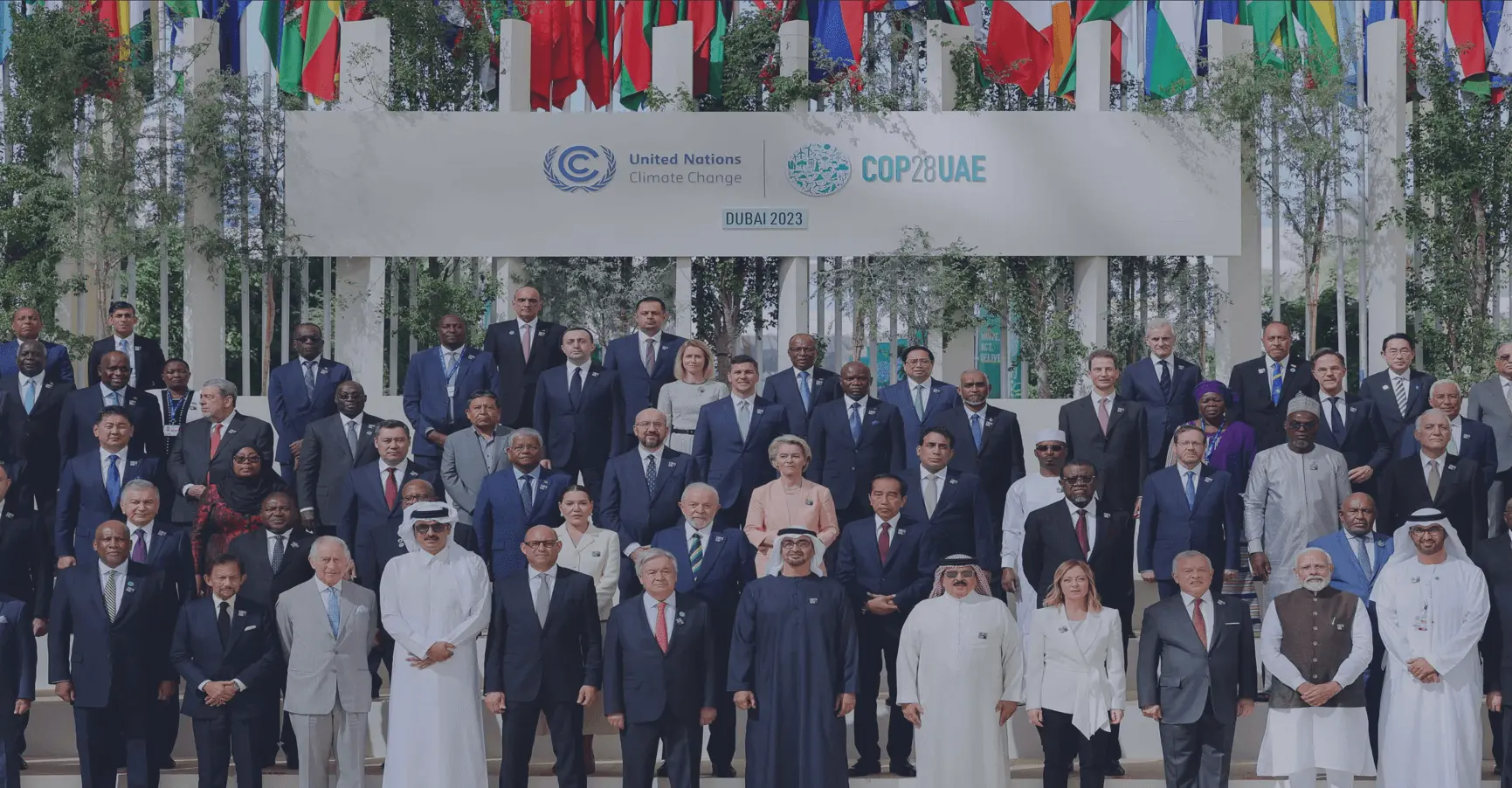The 28th Conference of the Parties (COP28) took place in Dubai, United Arab Emirates, from November 30 to December 12, 2023. Climate finance, climate adaptation, loss and damage, a fair and equitable transition, and climate technology were among the focal points of the conference.
Loss and Damage Fund
The Loss and Damage Fund, planned at COP27, was approved on the first day of COP28. All countries agreed to support the implementation of a $100 billion fund by 2030. This fund aims to provide financial assistance to climate-vulnerable and developing countries for the effects of disasters such as floods, wildfires, and desertification caused by climate change. Countries most responsible for climate emergencies committed to a total of just over $700 million. Contributions include $100 million from the United Arab Emirates, $100 million from Germany, £40 million from the United Kingdom (plus £20 million for other arrangements), $10 million from Japan, and $17.5 million from the United States.
Climate Finance Increase
Climate finance, described as the primary facilitator of climate action, received commitments from countries to invest in green climate projects. The total commitment to the Green Climate Fund (GCF) reached $12.8 billion with investments from 31 countries. While the increasing commitments are viewed positively, it is essential to note that the support provided falls significantly below the required amount for the transition to clean energy and the implementation of national climate plans in developing countries.COP28
Global Renewables and Energy Efficiency Pledge
With the aim of achieving a compatible energy transition for the 1.5°C target, 130 national governments agreed to triple the global installed renewable energy production capacity and double the rate of energy efficiency by 2030. As of December 11, signatory countries committed to working collaboratively to increase the world’s current renewable energy production capacity to at least 11,000 GW by 2030, considering different starting points and national conditions. Countries that did not sign the pledge include China, India, and Turkey.
The Global Cooling Pledge
66 national governments committed to reducing global emissions related to cooling by at least 68% by 2050 compared to 2022 levels. Some participants aim to recognize certification programs for Renewable and Low Carbon Hydrogen and Hydrogen Derivatives, focusing on the mutual recognition of certification programs for low-carbon hydrogen and its derivatives.
Oil and Gas Decarbonization Charter
52 countries committed to achieving net-zero operations by no later than 2050 and pledged to cease routine flaring and reduce methane emissions to near-zero levels by 2030.
The Powering Past Coal Alliance (PPCA)
This year, it was announced that national and sub-national governments supporting the reduction of fossil fuels, phase-out of coal, and transition to clean energy were added to the global Situation Assessment. As part of the activities of the Coal Exit Coalition, in which the United States also participated, France announced the activation of the ‘Coal Transition Accelerator’ mechanism, including new public and private financing sources, to facilitate a fair transition from coal. Additionally, a joint response text by Future Earth and the World Climate Research Program emphasized the need to completely halt coal use by 2050 and reduce oil and gas by 60-90%.
Green Livelihoods
‘$1.5 trillion investment opportunity in green buildings’ – Both the UK government and the IFC officially endorsed the Buildings Leap initiative launched at COP28, aiming to make emissions-neutral and resilient buildings the new normal by 2030. The UK will be recognized for a £36 million expansion in funding for the IFC Market Accelerator for Green Construction (MAGC).
New Topics Introduced at COP28
For the first time in COP, a day was dedicated to the theme of health to strengthen the connections between health and climate. The necessity of supporting “health arguments for climate action” covering both physical and mental health was emphasized, highlighting the need for global health systems to build resilience against potential climate issues. A total of 141 national governments participated in the COP28 UAE Declaration on Climate and Health, committing to building resilient and thriving communities.
Agriculture and biodiversity were among the topics introduced for the first time at COP. Agreements were reached on “resilient food systems” and “sustainable agriculture and climate.” Although there are currently no sanctions, an initial framework agreement was established in this area. The UAE Declaration on Sustainable Agriculture, Resilient Food Systems, and Climate Action was launched, containing commitments signed by 153 governments, involving various actions to reduce vulnerability and increase resilience against the impacts of climate change for all food producers, including farmers and fishermen. It was emphasized that collective progress in this regard should be reviewed at COP 29.
In conclusion, COP28 addressed accountability and transparency. Commitments were made for developing and low-resilience countries to collaborate, develop strategies together, and assist each other. Attention was drawn not only to conventional topics like the transition to renewable energy, climate finance, and green environments but also to issues such as health and agriculture. Conscious that all efforts will contribute to a shared outcome, we announce that the 29th Conference will be held in the city of Baku, Azerbaijan.





